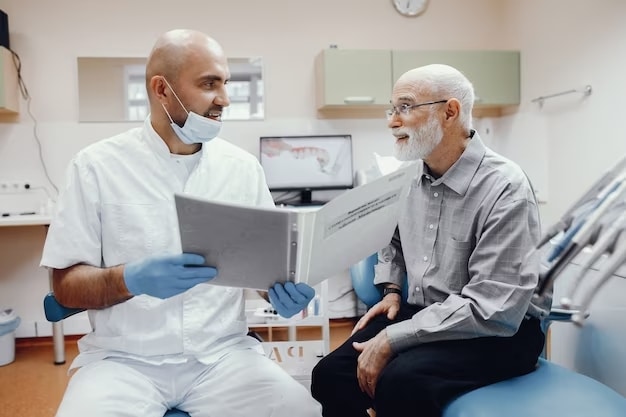
Mastering the Art of Communication in Modern Dentistry
Welcome to the world of modern dentistry, where communication is key and patient satisfaction reigns supreme. As a dental professional, you know that mastering the art of communication can make all the difference in creating a successful practice. It’s not just about explaining procedures or treatment options – it’s about building trust, establishing rapport, and delivering exceptional care. In this blog post, we’ll explore some tips and tricks for improving your communication skills as a dentist so you can take your practice to new heights.
Introduction to Effective Communication in Modern Dentistry
One of the most important aspects of being a successful dentist is effective communication. This means being able to communicate effectively with patients, staff, and other dental professionals. It’s important to be able to understand what patients are saying, and to be able to explain things clearly and concisely.
Tips for Mastering the Art of Communication in Modern Dentistry
1. Establish clear boundaries- Don’t overshare personal information or give too much advice. Stick to what you know and what the patient can reasonably understand.
2. Be respectful and understanding- It’s important not to come across as judgmental or condescending. Remember that your patients may have different experiences and knowledge than you do.
3. Take time to listen carefully- Let your patients explain their concerns and feelings, even if you don’t agree with them immediately. When you truly listen, you open up the possibility for further discussion and resolution of those issues.
4. Make use of body language and facial expressions- Nonverbal communication can be just as important as verbal communication when it comes to building trust and rapport with your patients. Watch how they react when you make eye contact, smile, or nod in agreement – these small gestures can go a long way!
Why is Communication Important in Dentistry?
Communication is one of the most important skills dentists need to have in order to provide quality care to their patients. It is essential for dentists to be able to talk with their patients about their dental care, problems they are experiencing, and ways to improve their oral health. Additionally, dentists need to be able to communicate with other members of the dental team, as well as the patient’s insurance company or billing agency.
It is also important for dentists to be able to communicate with their patients in a way that is comfortable for them. In some cases, this may mean being straightforward and honest with patients about what needs to be done in order for them to receive optimal dental care. Other times, it may be helpful for dentists to take into account the patient’s cultural background when discussing dental procedures.
Effective communication requires good listening skills. Dentists need to pay close attention not only when they are talking with their patients, but also when they are listening to the Patients’ concerns and questions. By paying close attention both during and after dental appointments, dentists can build a strong relationship of trust with their patients and ensure that everyone involved is happy with the outcome of their visit.
Conclusion
As dentists, we are constantly interacting with patients and must be able to communicate effectively in order to provide the best possible dental care. This article has outlined some key principles that will help you master the art of communication in modern dentistry. By following these tips, you can develop a strong rapport with your patients and ensure that they always have a positive experience when visiting your practice. Thanks for reading!

